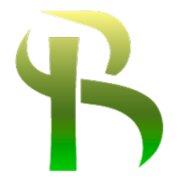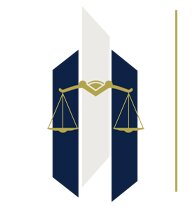Best Sanctions & Export Controls Lawyers in Bloemfontein
Share your needs with us, get contacted by law firms.
Free. Takes 2 min.
List of the best lawyers in Bloemfontein, South Africa
About Sanctions & Export Controls Law in Bloemfontein, South Africa
Sanctions and export controls law in Bloemfontein, and throughout South Africa, governs how individuals and businesses interact with foreign countries, entities, and individuals in terms of trade, finance, and technology transfers. These laws are designed to protect national security interests, comply with international obligations, and prevent illicit activities such as money laundering, terrorism financing, and proliferation of sensitive technologies.
Bloemfontein, as a regional economic hub, has industries and businesses frequently engaging in international trade, making knowledge of these laws crucial. Both national and international sanctions regimes may apply, impacting activities related to import and export of goods, provision of certain services, and financial transactions with designated persons or countries.
Why You May Need a Lawyer
Navigating the complex web of sanctions and export control regulations can be daunting. You may need a lawyer in the following situations:
- When your business is exporting or importing goods or services and you are unsure if licenses or permits are required.
- If you have received a notification about possible sanctions violations or have had shipments detained by customs authorities.
- When you need to verify your clients or partners are not listed on restricted or sanctioned lists.
- If you are subject to an investigation or enforcement action by authorities such as the South African Revenue Service (SARS) or Financial Intelligence Centre (FIC).
- If your South African entity is a subsidiary or affiliate of a foreign company, especially from regions with their own sanctions regimes such as the European Union or United States.
- When negotiating contracts that may involve sanctioned territories or require compliance with international export control regimes.
- If you seek clarification on dual-use items or technology transfers that fall under sensitive categories.
Local Laws Overview
Sanctions and export controls in Bloemfontein are governed primarily by national South African legislation, but certain provincial and municipal regulations may also apply. Key legal instruments include:
- Foreign Trade Policy Act: Regulates the import and export of goods and services and provides mechanisms for prohibitions and licensing.
- Regulations in terms of the United Nations Act: Mandates compliance with UN Security Council sanctions which are adopted in South Africa via governmental notices.
- Non-Proliferation of Weapons of Mass Destruction Act: Ensures exports do not contribute to the development of chemical, biological, or nuclear weapons.
- Financial Intelligence Centre Act (FICA): Requires due diligence and reporting on financial transactions linked to sanctioned individuals or activities.
- Customs and Excise Act: Provides customs authorities the power to inspect and detain goods suspected of breaching sanctions or export controls.
South Africa aligns its sanctions and export controls with international obligations, but enforcement is local and violations can lead to severe penalties, including fines and imprisonment. Businesses and individuals in Bloemfontein must ensure ongoing compliance with both national laws and any relevant international requirements.
Frequently Asked Questions
What are sanctions and how do they affect me?
Sanctions are legally binding restrictions imposed by governmental or international bodies to restrict dealings with specific countries, entities, or individuals. They can impact your ability to trade, provide services, or transfer funds to certain regions or persons.
How can I know if a country or person is sanctioned?
Official lists of sanctioned countries and individuals are published by the South African government, especially when enforcing United Nations or other international sanctions. Checking these lists is crucial before engaging in international business.
Do I need a license to export goods from Bloemfontein?
Many goods require export licenses, especially if they are dual-use (civilian and military application) or otherwise sensitive. You must check with the Department of Trade, Industry and Competition (DTIC) for licensing requirements.
What happens if I breach sanctions or export controls?
Violations can result in your goods being detained, hefty fines, and even criminal prosecution leading to imprisonment. Companies may also face reputational damage and loss of export privileges.
Are South African companies required to follow foreign sanctions, such as from the United States?
While South Africa enforces its own sanctions and those of the United Nations, some foreign sanctions may affect local businesses, especially if they are part of multinational operations or deal in US dollars. Legal advice is recommended in such cases.
What role do customs authorities play in enforcing sanctions?
Customs officials can inspect, detain, or seize goods at borders if they suspect a violation of sanctions or export controls. They also work with other agencies to ensure compliance with national and international obligations.
Can individuals be penalized for sanctions violations, or just companies?
Both individuals and companies can be held liable for breaches. Directors, agents, or employees found complicit may face personal fines or imprisonment.
Is there any public list of prohibited goods or controlled technologies?
Yes, the Department of Trade, Industry and Competition provides schedules and lists that detail controlled goods and technologies, which are periodically updated.
Do these laws affect digital goods or technology exports?
Yes, restrictions can apply to software, encryption technology, and digital services, especially if they concern sensitive or dual-use technologies.
How should I respond if my customs shipment is detained?
Contact a lawyer specializing in sanctions and export controls immediately. Do not attempt to bribe or negotiate informally with officials. Collect all documentation and official notices, and cooperate fully with investigations.
Additional Resources
Several resources and agencies can provide information and guidance:
- Department of Trade, Industry and Competition (DTIC): Primary licensing authority for exports and regulatory guidance.
- South African Revenue Service (SARS): Customs and Excise enquiries, enforcement, and protocols for import-export.
- Financial Intelligence Centre (FIC): Guidance on financial compliance with sanctions regimes.
- South African Police Service (SAPS): Investigation of criminal breaches relating to sanctions and export controls.
- Provincial government trade desk: Local support for businesses dealing with export/import regulations in Bloemfontein and the Free State province.
- Legal Aid South Africa: Basic legal advice and referrals, although specialized export control matters may require private counsel.
Next Steps
If you are uncertain about your compliance status, have received a notice, or are preparing to engage in international business from Bloemfontein, consider the following steps:
- Consult a legal professional with experience in sanctions and export controls to assess your risks and obligations.
- Collect all relevant documents, contracts, and communication before your consultation.
- Review governmental and departmental guidance on current sanctions and export control regulations.
- Implement internal compliance and training in your business to prevent inadvertent violations.
- Act proactively if you suspect a breach has occurred, as timely legal advice may mitigate potential penalties.
Sanctions and export controls law is complex and can impact your business or personal dealings significantly. Professional legal advice is the best way to ensure compliance and protect your interests.
Lawzana helps you find the best lawyers and law firms in Bloemfontein through a curated and pre-screened list of qualified legal professionals. Our platform offers rankings and detailed profiles of attorneys and law firms, allowing you to compare based on practice areas, including Sanctions & Export Controls, experience, and client feedback.
Each profile includes a description of the firm's areas of practice, client reviews, team members and partners, year of establishment, spoken languages, office locations, contact information, social media presence, and any published articles or resources. Most firms on our platform speak English and are experienced in both local and international legal matters.
Get a quote from top-rated law firms in Bloemfontein, South Africa — quickly, securely, and without unnecessary hassle.
Disclaimer:
The information provided on this page is for general informational purposes only and does not constitute legal advice. While we strive to ensure the accuracy and relevance of the content, legal information may change over time, and interpretations of the law can vary. You should always consult with a qualified legal professional for advice specific to your situation.
We disclaim all liability for actions taken or not taken based on the content of this page. If you believe any information is incorrect or outdated, please contact us, and we will review and update it where appropriate.












